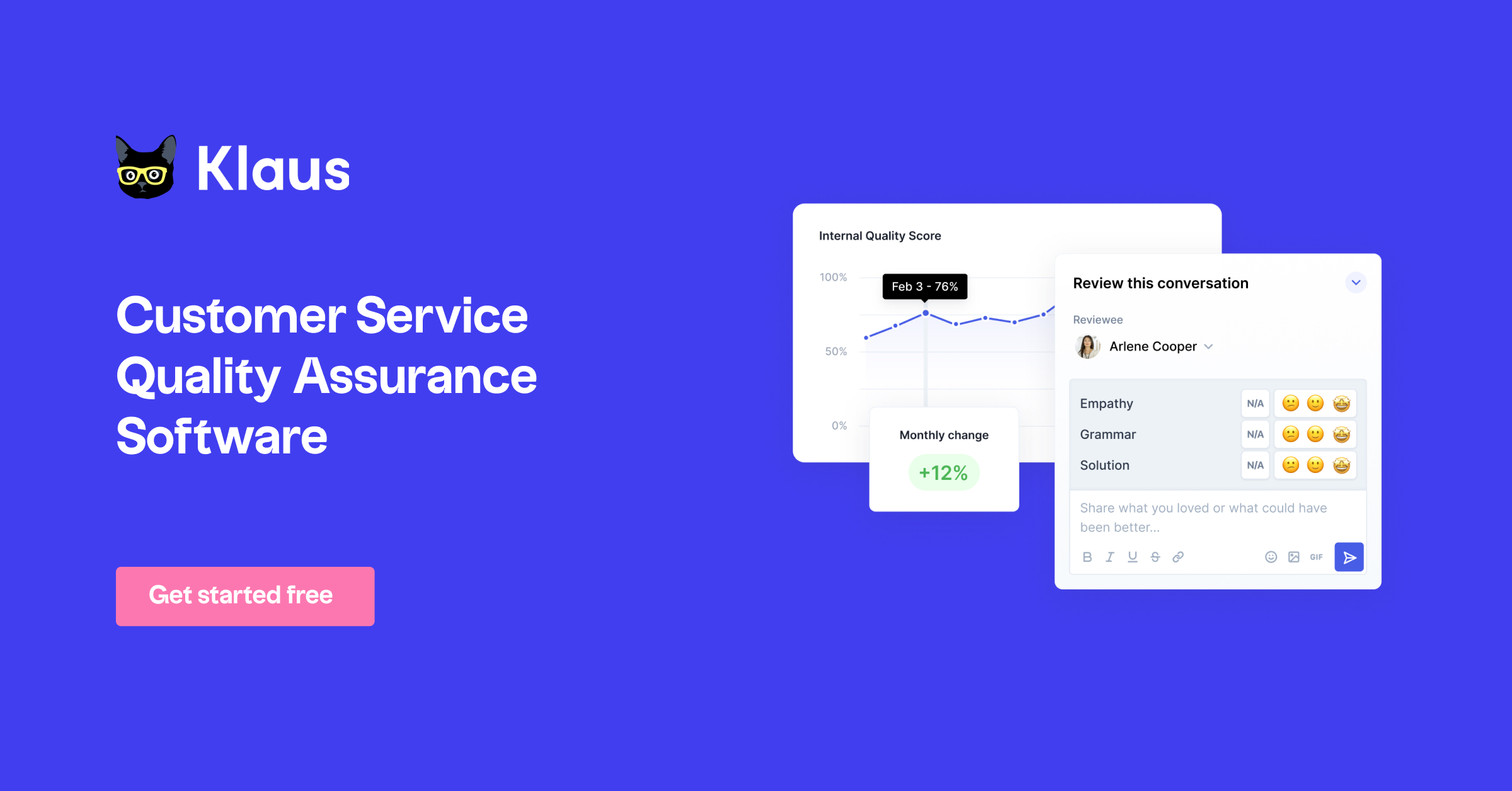Martin Kõiva was at Pipedrive, leading the company’s customer support organization, when he says he came to the realization that the best way to prevent bad customer interactions is to analyze previous ones, give agents regular check-ins and not rely too strictly on customer feedback. But Kõiva was hampered in his efforts to implement these practices at scale because the tools to do so didn’t exist, he says.
Seeking to build them himself, Kõiva teamed up with Kair Käsper (also ex-Pipedrive) and Egon Sale to co-found Klaus, a customer support product that integrates with clients’ customer relationship management platforms (e.g., Zendesk, Salesforce Service Cloud) to automatically review customer support conversations from channels like web chats. Klaus today closed a €12 million (~$11.49 million) Series A equity round led by Acton Capital, which Kõiva says will be used to support the development and further expansion of Klaus’s software.
For large companies that have millions of support tickets, it is crucial that managers are able to find the conversations that have a meaningful impact on performance. It’s a needle in a haystack,” Kõiva told TechCrunch in an email interview. “Klaus is able to automatically analyze the entire customer support volume and pinpoint which conversations require attention.”
Drawing on customer support tickets, input from managers reviewing agent conversations and customer satisfaction feedback, Klaus trains AI algorithms to perform tasks like automatically categorizing comments from customers and sorting conversations by attributes like complexity. Klaus can perform sentiment analysis in a number of languages out of the box, Kõiva claims, a capability the platform uses to score the “quality” of customer-agent conversations.

“Klaus [can] piece together what ‘good’ and ‘bad’ looks like for each individual customer and, with the help of data science, deliver actionable insights that improve customer service for companies that have millions of support tickets every month,” Kõiva said. “Klaus technology is currently analyzing two million customer conversations every day.”
Automated scoring systems, particularly those that rely on potentially biased sentiment analysis techniques, raise questions about whether customer agents might be evaluated inaccurately or unfairly. When asked about factors like bias, Kõiva said that Klaus takes mitigating steps like removing color-, region-, and gender-specific emojis in the customer feedback data that its algorithms analyze.
Klaus competes with companies such as MaestroQA, Playvox and Stella Connect. Beyond those, there’s ScopeAI, acquired by Observe.AI in 2021 for its technology that helps companies analyze customer feedback, and Zendesk-owned Cleverly, which automatically tags incoming customer service requests to help categorize the workflow.
Kõiva believes Klaus is well-positioned, however, with a customer base totaling “hundreds” of companies, including Epic Games, SoundCloud and WordPress.com. To continue to stand out, Klaus recently added customer satisfaction survey functionality with automatic tagging, allowing admins to spot trends that they might otherwise miss.
“Klaus has … seen an uptick in interest from companies that are looking to optimize their customer service operations,” Kõiva continued. “Large enterprises also tend to use more outsourced customer service to keep costs flexible during uncertain [economic] times, and Klaus provides a degree of confidence that the quality of the outsourced service is under control.”
Klaus currently employs around 60 people, a number Kõiva expects will grow to over 100 within the next six months. To date, the startup has raised more than $19 million in venture capital.































Comment